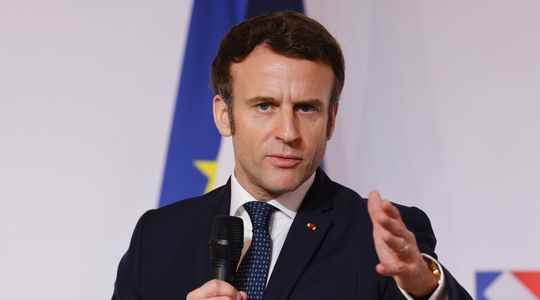Pass of arms. Phrase designating a lively exchange of polemical arguments leading to a heated debate. If they have been torn apart for several days, the Polish and French chancelleries should agree on the definition to be given to qualify the week of diplomatic tension which has just ended between their respective heads of state.
Emmanuel Macron does not have the same relationship with Polish Prime Minister Mateusz Morawiecki as he does with German Chancellor Olaf Scholz or US President Joe Biden. Ideologically opposed, Emmanuel Macron and MateuszMorawiecki do not agree on anything. They strongly disagreed on respect for the rule of law in Poland, on the European recovery plan at the end of the first wave of Covid-19 or even on the subject of the construction of the budget of the European Union.
While Emmanuel Macron had received, a year after going to Warsaw, last March his counterpart at the Elysée Palace in order to “remove misunderstandings”, the naturalness of their antagonism returned at a gallop. Judged to be close to Marine Le Pen since the reception of the president of the National Rally at conferences bringing together the leaders of European sovereigntist and far-right parties, the Polish Prime Minister is accused by Emmanuel Macron’s teams of wanting to fit into the debates of the French presidential campaign. His latest media outings calling on the President of the European Union “to no longer negotiate with Vladimir Putin” set off a series of murderous little phrases which culminated, on Friday 8 April, in the summoning of the French ambassador to Warsaw by the Polish Ministry of Foreign Affairs. Account of a diplomatic escalation in three acts.
Monday April 4: “Hitler, Stalin or Pol Pot”
Invited to speak about the massacres of civilians perpetrated by the Russian army on the outskirts of the Ukrainian capital, Mateusz Morawiecki attacks Emmanuel Macron by questioning him vigorously: “Mr President Macron, how many times have you Negotiated with Vladimir Putin? Did you get anything? There is no need to negotiate with criminals. Would you negotiate with Hitler, Stalin or Pol Pot?”
An exit taken up by the French and Polish newspapers which did not please Emmanuel Macron at all. Questioned, Wednesday April 6, within the framework of his electoral campaign, the French president describes these remarks as “unfounded and scandalous”. “They do not surprise me. The Polish Prime Minister is on the far right, has received Madame Le Pen several times. I fully assume that I spoke to the President of Russia. (…) I have never been an accomplice, unlike others,” said the outgoing president, candidate for re-election.
Thursday, April 7, “far-right anti-Semite”
Relaunched on the subject in the columns of the Parisian, Emmanuel Macron presents Mateusz Morawiecki as an “extreme right-wing anti-Semite” and repeats his accusation of interference: “He supports Marine Le Pen, whom he has received on several occasions. Let’s not be naive, today he wants the help before the ballot”. He even goes further and lets go: “In addition, [il] fights LGBT people.”
Regularly pinned for remarks deemed homophobic, the ministers of the Morawiecki government are directly targeted by Emmanuel Macron in this projection. Several months earlier, this same government had championed a controversial Holocaust memorial law, sparking outrage from Israel and many historians.
Friday, April 8, embassy affair
Emmanuel Macron’s barely veiled spade does not pass in Warsaw. The spokesman for the Polish government reacts on Friday. “Talking about the Polish Prime Minister in the context of anti-Semitism is quite simply a lie, it has nothing to do with the facts, gets carried away Piotr Müller. I hope that this electoral campaign in France will calm down, that the French president will speak differently, and will really stick to historical facts.”
The French ambassador in Warsaw, Frédéric Billet, is summoned to the Polish Foreign Ministry. The subject is no longer just a confrontation between the two men but is clearly at the heart of the diplomatic exchanges between the two nations. Will Mateusz Morawiecki react, Sunday April 10, on the evening of the first round of the French presidential election? The fourth act could be prepared behind the scenes.
